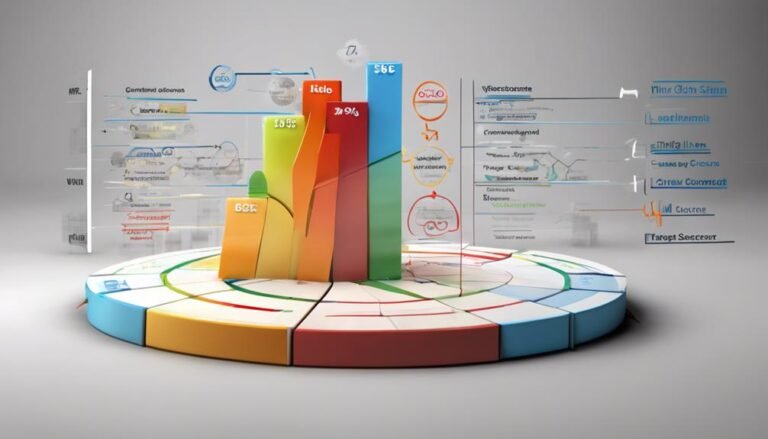What Is Emigration? Definition, Reasons, and Economic Impact
Emigration involves individuals leaving their home country to settle elsewhere, impacting demographics and economies worldwide. Reasons include seeking better opportunities, avoiding poverty, sending remittances, and accessing education. Economically, it affects labor forces, economic growth, job availability, and wage levels. In the job market, emigration can reduce local labor forces, influence productivity, competitiveness, and wage levels. Remarkably, the U.S. Immigration and Naturalization Act governs policies, allowing 675,000 permanent immigrants yearly based on criteria like family ties and job qualifications. Various visas cater to skilled immigrants, aiming to attract a qualified workforce for economic development.
Key Takeaways
- Emigration involves significant demographic shifts and cultural diversity.
- Reasons include seeking better job opportunities and escaping poverty.
- Emigration impacts labor force, economic growth, and job availability.
- Job market effects include productivity changes and wage level influences.
- U.S. immigration policies attract skilled workers for economic growth.
Definition of Emigration
Emigration, the deliberate relocation of individuals from one country to another, signifies a significant demographic shift with multifaceted economic implications. Socially, emigration can lead to the separation of families and communities, impacting social structures and support systems.
Additionally, emigration contributes to cultural diversity by introducing new customs, beliefs, and traditions to receiving countries. Culturally, the exchange of ideas and practices brought by emigrants enriches societies and fosters cross-cultural understanding. However, emigration can also give rise to challenges such as integration difficulties and cultural clashes.
Hence, understanding the social implications and cultural diversity resulting from emigration is essential for policymakers to create inclusive societies and support the successful integration of migrants into their new communities.
Reasons for Emigrating
In contemporary global migration trends, individuals choose to relocate to different countries primarily due to a complex interplay of economic opportunities, societal factors, and personal circumstances. When considering reasons for emigrating, key factors include:
- Financial Motivations:
- Seeking better job opportunities.
- Avoiding poverty.
- Sending remittances to support families back home.
- Education Opportunities:
- Accessing higher quality education.
- Securing opportunities for skill development.
- Enhancing career prospects through advanced educational programs.
- Skilled Emigrants:
- Secure high-paying jobs.
- Contribute positively to the host country's economy.
- Economic Impact:
- Education and skills play a crucial role in the economic impact of emigration.
- Sending countries may face challenges due to the emigration of skilled individuals.
Economic Impact of Emigration
Considering the multifaceted reasons behind emigration, the economic impact of this phenomenon holds significant implications for both sending and receiving countries. Emigration can lead to a reduction in the labor force of the sending country, affecting its economic growth potential.
Conversely, receiving countries may experience economic growth due to the influx of additional workers. The labor market dynamics in both countries are influenced by emigration patterns, impacting job availability and wage levels.
Skilled worker emigration, in particular, can have repercussions on the economic development of sending countries. Understanding these effects is vital for policymakers to implement measures that maintain the balance in the labor market and foster sustainable economic growth.
Job Market Effects
The impact of emigration on job markets is a critical aspect of understanding the economic implications of this phenomenon for both sending and receiving countries. When individuals leave their home country in search of better opportunities elsewhere, it can have significant effects on the labor market dynamics and wage levels. Here are some key points to take into account:
- Labor Force Dynamics:
- Emigration can lead to a reduction in the local labor force, especially if skilled workers are leaving in large numbers.
- This can create gaps in the workforce and affect the overall productivity and competitiveness of the sending country.
- Impact on Wages:
- In receiving countries, emigration can influence wage levels, with shortages of skilled workers potentially driving up salaries.
- Conversely, in sending countries, the outflow of skilled labor may lead to wage stagnation or even decline in certain sectors.
Emigration to the United States
Emigration patterns to the United States exhibit a notable impact on the country's workforce composition and economic development. The U.S. Immigration and Naturalization Act governs immigration policies, allowing for 675,000 permanent immigrants annually. Emigration criteria encompass family ties, job qualifications, and workforce diversification.
Various visa options cater to immigrants with valuable skills, emphasizing family unification and skilled worker immigration. Such policies aim to positively influence the workforce and economy by attracting a skilled workforce. Skilled worker emigration can hinder economic development in sending countries, reinforcing the importance of balancing emigration rules to safeguard job markets and enhance workforce diversity.
The U.S. prioritizes attracting skilled individuals who can contribute significantly to the economy, underlining the strategic importance of immigration policies for fostering economic growth.
Conclusion
In summary, emigration has a substantial impact on both sending and receiving countries' economies, reshaping workforce dynamics and consumer spending patterns. Like a river flowing between two lands, emigration presents both opportunities and challenges, with skilled workers enhancing economies while reducing labor forces in sending nations.
Understanding the reasons behind emigration and its educational implications is essential for policymakers to navigate these economic shifts effectively.







